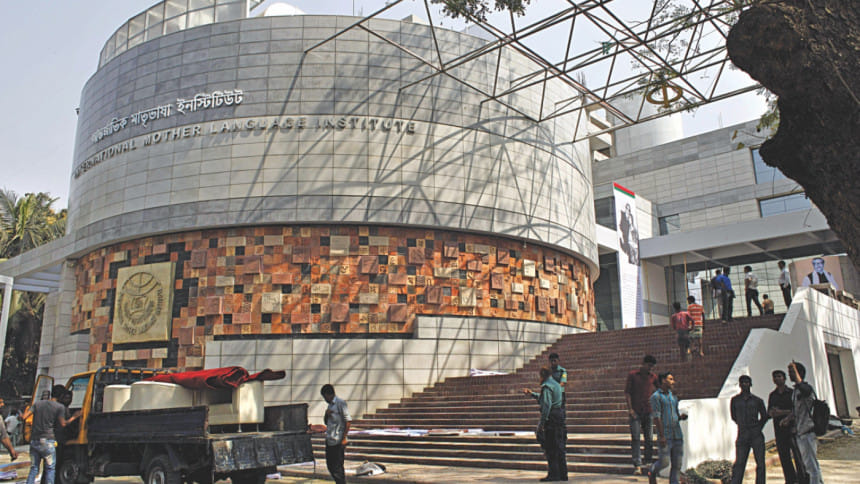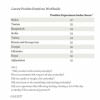To protect all spoken words

The large building with its façade adorned with alphabets can't be missed from the VIP road opposite Kakrail Mosque in Ramna.
A wide flight of stairs leads to a display of world languages. Rows of tall panels on the floor of the gallery depict the origins and development of many ancient and modern languages.
This is the International Mother Language Institute (IMLI), a statutory body that came into being through the passing of a law on October 2010, almost a decade after 21st February was declared the International Mother Language Day by the UN.
"Information about 66 countries in Asia and Australia and Pacific, the status of their mother languages, including cultural diversity, number of mother language speakers and official languages etc. are displayed on the panels," said Professor Dr Jinnat Imtiaz Ali, Director General of IMLI.
The country's only language museum is located on the ground floor of the building. Opened in 2011, the language museum is working currently to digitise its content. Once done, users can click on links in display kiosks to get information about a country's location, its national anthem, and folk songs. Videos will also tell of their cultural diversity.
The main task of the IMLI is the protection and preservation of languages through an ethno-linguistic survey, Dr Ali said.
"Through this, all the languages spoken by the ethnic communities in the country will be documented. There will be efforts after that to develop writing system for languages that do not have any written scripts or formal linguistic methods. This will make our education system more inclusive,” he explained.
A virtual archive of the languages of the world, both ancient and modern, is also being developed. Ali said work on written languages of Asia was complete while that of the European, American and African ones is still underway.
The archive would also hold audio clips of languages, even ancient ones. Replicas of inscriptions from the Mohenjo-Daro and the Asoka era have been acquired to add to the ancient writing systems section, Ali said. He expected the work to be completed by June this year.
IMLI has taken up a number of other activities over the last five years, informs Dr Ali.
One of these is the development of software that can be used to compose scientific books in Bangla. This would make it easier to insert scientific symbols, Ali said.
From March this year, IMLI will start a Foreign Language Training Centre. Workers going abroad will receive a three-month communication skills training there.
"We will start with Arabic and Malay (Bahasa Malay) and later other courses may be offered," said Ali adding that the institute would also run a Bangla course for foreigners.
The institution, however, is short in manpower, he said. "At present, our survey is outsourced. It could be done cheaper if we had our own researchers," Ali said, adding that since the field of language research is still new here, it is hard to find good workforce.

 For all latest news, follow The Daily Star's Google News channel.
For all latest news, follow The Daily Star's Google News channel. 








Comments